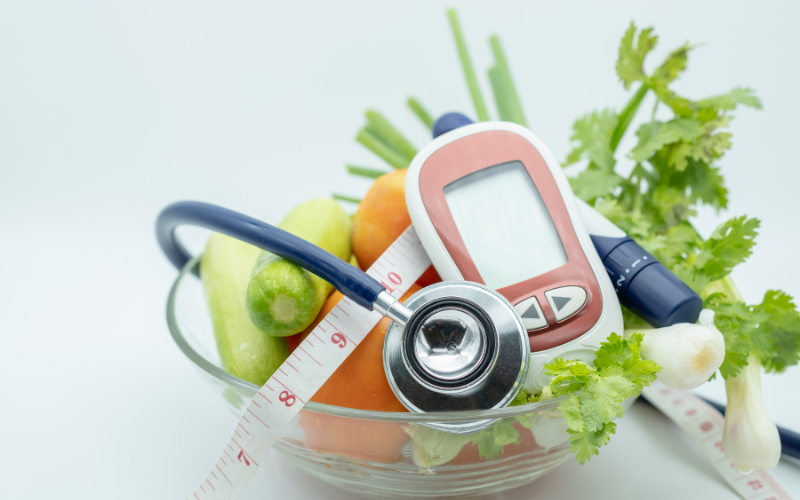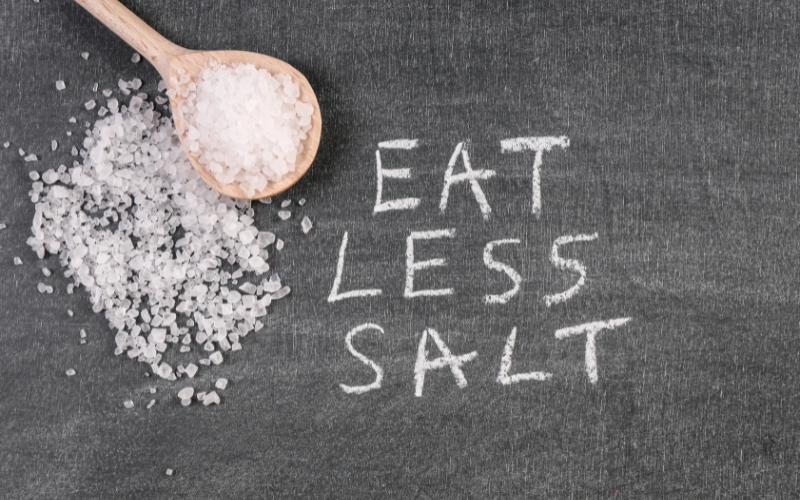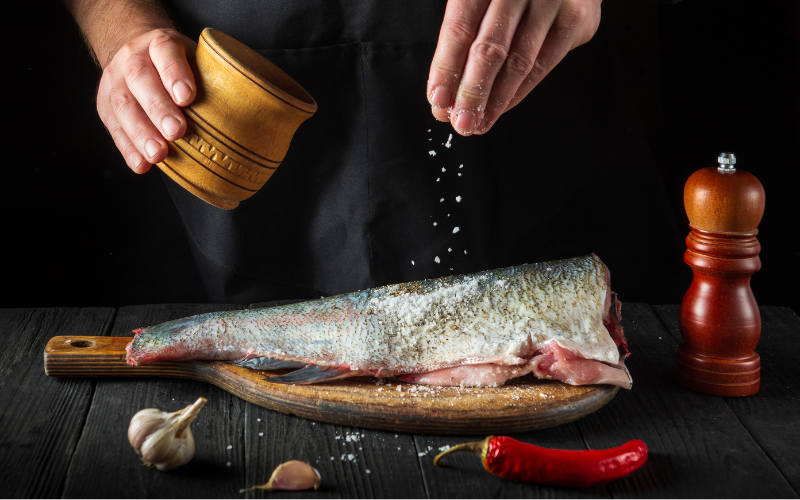How to live longer, stronger & healthier: Top 10 tips for good health this year

Do you want to live healthier in 2024? Perhaps you’ve got #healthgoals you want to accomplish, doctor gave you some bad news, or you have just decided that your New Year’s resolution is to live to 100. Whatever your motivation, we’ve got ten top tips to get you feeling healthier and stronger, so you can live well and live longer. If you’re hungry for more information, there are plenty of linked resources throughout this article.
1. Remove highly-processed foods from your diet
If you only follow one of these tips, make it this one. Why? Because reducing or eliminating super processed foods can make the biggest positive difference to realising good health.
Ultra-processed foods are foods containing ingredients that are significantly modified from their original form. It might be that they contain preservatives, additives, genetically modified ingredients, artificial colours and flavours, sugar or synthetic sweeteners, refined oils, or salt. These ingredients are all big health no-no’s. Not only do they offer empty calories (calories that add no nutritional value) but they are potentially downright dangerous for you. Scientists are just beginning to connect the dots between a diet high in ultra processed foods and links to chronic diseases.
The ingredients in highly processed foods make them extra palatable, which can lead to over consumption and weight gain. Eaten to excess, however, these foods don’t make you feel good and don’t help your body to perform optimally. They are linked with obesity, type 2 diabetes, heart disease and other health conditions.
For the sake of your health and your waistline, make fast foods, hot chips, packaged snacks and canned foods your sometimes foods, not your everyday foods. Learn more about the dangers of ultra processed foods.
2. Eat for a healthier gut
Gut health information can get confusing, so let’s boil things down for you. The number one thing you can do to improve your gut health is to boost your intake of high-fibre plant foods. That includes fruits, vegetables, nuts, seeds, legumes and grains. All these foods provide the right fodder to grow more healthy bacteria and to squeeze out the bad stuff. Dietary guidelines recommend 25-30g of fibre per day. Are you getting enough? Most Australian’s fall far short.
If you’re looking for a menu that’s high in fibre for improved gut health, try this Gut Health Pack.
3. Prioritise sleep
Are you a poor sleeper and you’ve just come to accept it? Our advice, don’t. Make 2024 the year to investigate how to improve your sleep. Why? Because poor sleep is linked to adverse health outcomes. For example, poor food choices, weight gain, insulin resistance, lack of appetite control, lethargy and reduced mental performance.
See your doctor for a health check-up because there may be an underlying issue impacting your sleep. Here are some helpful tips you can implement straight away to improve your chance of a good night’s sleep.
4. Eat anti-inflammatory foods
Unfortunately, our fast-paced world of bad food, pollution, sitting around too much and stress is all contributing to inflammation within our bodies. Do yourself a favour and try to choose foods that are high in antioxidants regularly to drive down the inflammation in your body. These include fatty fish for omega 3’s, fruit and veges (particularly highly colourful varieties), herbs, spices and high fibre for a start. Steering clear of processed foods that are highly inflammatory is also important.
You’ll not only feel better, recover faster from exercise but it will also help you lose stubborn belly fat and tackle any hormonal changes with a lot more dignity! A perfect diet for any age, but most particularly for pre and post-menopausal women and ‘manopausal’ men. Learn more about the benefits of anti-inflammatory eating for a good long life here.
5. Eat nuts and seeds
Well, in a nutshell, nuts are a convenient and healthy snack and they’re ultra nutritious! New research suggests that regular consumption of nuts can slash your risk of dying from a whole range of diseases. For example, nuts can cut your risk of coronary heart disease by nearly 30%; diabetes by almost 40%; cancer by 15%; respiratory disease by around 50%; and early death by approximately 22%.
Some people avoid nuts because they are high in fat, but you might be surprised to hear that not all the fat will be absorbed if you eat whole, natural nuts, unlike if you eat ground or processed ones. The healthy fats they contain are amazing for brain health, mood and improving cognition in elderly people – on just ½ to one serving a day. They are also packed with protein, fibre, and many vitamins and minerals.
If you’re looking to increase your consumption of nuts, try our organic tamari almonds and other healthy, nutty snacks.
6. Choose good protein
There’s a lot of information around about high protein diets and low carbs for weight loss, but for overall health protein is vital too. It’s crucial for growth, repair and development and your body has to have an adequate intake of amino acids from food, to make the proteins you need.
Protein has the potential to help moderate body weight, reduce cravings and boost metabolism. It will also suppress hunger and help you make it through to the next meal without snacking. That’s why it’s important to incorporate protein at every meal. Healthy sources include eggs, lean meats, fish and seafoods, nuts, legumes, seeds, wholegrains.
7. Stop sitting so much & move your body more
Did you know that sitting is the new smoking? Yup, in terms of ill effects on your health, prolonged sitting now causes more deaths than smoking. Too much sitting is anything over 4 hours a day and it’s linked to back pain, osteoarthritis, weight gain, muscle degeneration, cardiovascular issues, cancer risk and diabetes risk. Unfortunately, Aussie’s sit for an average of 10 hours per day!
Here’s an article that will provide more info on why you shouldn’t sit and how much physical activity you should do.
8. Try intermittent fasting
Intermittent fasting means you switch between periods of eating and not eating. It’s more about when you eat, rather than what you eat, although making healthy choices is always recommended for your overall good health. Some people who intermittently fast choose to skip breakfast or dinner, so that their overnight (sleeping) fast is extended for longer.
Research has shown many health benefits from intermittent fasting, from improvements to blood sugar levels, digestion and heart health to fat loss and muscle retention.
Learn more about fasting, how it works and benefits in this article.
9. Get into strength training
If you’re interested in changing your body composition, then strength and resistance training will be what you need. Aside from helping you to build muscle, tone your body and lose body fat, doing strength training can also lead to improvements in balance and posture plus metabolic health markers such as blood sugar levels.
Twice a week is recommended and don’t worry if you don’t have weights or a gym membership. You can even do strength exercises at home with your own bodyweight or resistance bands.
10. Drink more water
Hydrating yourself means optimising your blood volume and ultimately helping your body work to its optimum. Even being mildly dehydrated can cause problems with your blood pressure, heart rate, and body temperature. Severe dehydration can also cause weakness or confusion. Water is best as it contains no calories, sugar or additives. If you find water too plain, then try sparkling water, lemon water or herbal teas.
The easy way to live longer + achieve ultimate health
If implementing these tips feels beyond what you can manage alone, but you want to optimise your health this year, try The Ultimate Health & Wellbeing Diet! We’ve specially created this plan to help people who want to enjoy the convenience of home delivered meals, while kicking the habit of eating processed foods. It provides five days of healthy meals to ensure you meet your nutritional needs so you can feel and see the visible results of a boost in your health and wellbeing.
Learn more about The Ultimate Health & Wellbeing Diet







